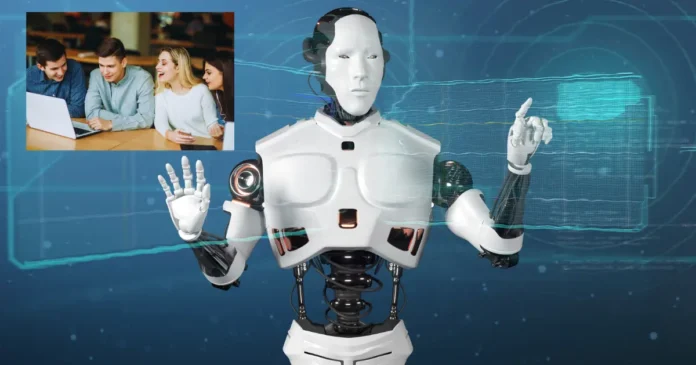Have you ever wondered how a computer can understand and respond to your questions? That’s the magic of artificial intelligence, or AI for short. AI is like a super-smart computer that can learn, think, and solve problems.
Just like learning to ride a bike or play a musical instrument, learning about AI can be a fun and rewarding experience. It’s not just about the technology; it’s about developing essential skills for the future. AI education can help you become a better problem-solver, a more creative thinker, and a more confident learner.
So, let’s find more about the AI and discover how it can benefit young students like you!
Enhanced Problem-Solving Skills
One of the most exciting things about AI is its ability to help us solve problems in creative and innovative ways. Just imagine having a computer that can help you brainstorm ideas, analyze data, and find solutions to complex challenges.
AI-powered tools, like intelligent tutoring systems and interactive games, can provide students with personalized learning experiences that help them develop critical thinking and problem-solving skills. For example, a student might use an AI-powered math tutor to practice solving equations, receive feedback, and identify areas where they need more help.
By using AI, students can learn to approach problems from different angles, break them down into smaller steps, and evaluate different solutions. These skills are essential for success in school and in life.
Fostered Creativity and Innovation – Inspiring Young Minds
AI isn’t just about problem-solving; it’s also about creativity and innovation. Just as artists use brushes and musicians use instruments, students can use AI to create amazing things.
Imagine being able to paint a picture without ever picking up a brush. With AI-powered art generators, students can experiment with different styles, colors, and textures to create unique and expressive artwork. Or, they can use AI to compose music, write stories, or design virtual worlds.
AI can inspire students to think outside the box, explore new ideas, and express themselves in creative ways. By learning to use AI tools, students can develop their imagination and become more confident in their abilities.
Personalized Learning Experiences – Tailoring Education to Individual Needs
One of the biggest challenges in education is ensuring that every student receives the support they need to succeed. Traditional classroom settings can sometimes struggle to meet the diverse needs of all learners.
AI can help to address this challenge by providing personalized learning experiences. AI-powered systems can analyze student data, identify their strengths and weaknesses, and adapt the curriculum to meet their individual needs. For example, a student who struggles with math might receive extra practice problems or be paired with a virtual tutor.
Personalized learning can make learning more engaging and effective. When students feel like they are getting the support they need, they are more likely to be motivated and successful.
Improved STEM Education – Making STEM Subjects More Accessible
Science, Technology, Engineering, and Mathematics (STEM) are essential subjects for the 21st century. However, many students find STEM subjects challenging or boring.
AI can help to make STEM education more engaging and accessible. For example, AI-powered simulations can allow students to experiment with scientific concepts in a virtual environment. AI-powered coding tools can make learning to code more fun and interactive.
By using AI, students can explore STEM subjects in new and exciting ways. This can help to spark their interest in these fields and prepare them for future careers.
Preparation for the Future Workforce – Developing Essential Skills for the Future
The world of work is changing rapidly, and AI is playing a major role in this transformation. As AI becomes more integrated into our daily lives, there will be a growing demand for people who understand and can work with AI technologies.
By introducing AI to young students, we are preparing them for the future workforce. AI education can help students develop essential skills such as problem-solving, critical thinking, creativity, and digital literacy. These skills will be invaluable in a world where AI is becoming increasingly important.
So, if you want to give your child a head start on their future career, consider introducing them to the exciting world of AI.
Conclusion
By integrating AI into the classroom, we can create personalized learning experiences, improve STEM education, and equip students with the essential skills needed to succeed in a rapidly changing world. AI is not just a tool; it’s a powerful catalyst for educational transformation.
So, let’s embrace AI as a valuable resource and empower young minds to reach their full potential. The future of education is AI, and it’s brighter than ever before.
FAQS
Examples include intelligent tutoring systems, virtual reality simulations, and AI-powered language learning apps.
Encourage them to explore AI-related resources online, participate in coding clubs or workshops, and engage in hands-on AI projects.
Address concerns such as privacy, bias, and the ethical implications of AI technology.
Discuss the importance of equity and inclusivity in AI education, including providing resources and support to students from disadvantaged backgrounds.
Join the AI Revolution
Are you ready to embark on an exciting journey into the world of AI? Start exploring AI-related resources, join coding clubs or workshops, and encourage your child to embrace the power of technology.
Together, we can shape the future of education and unlock the limitless potential of AI for young learners.

